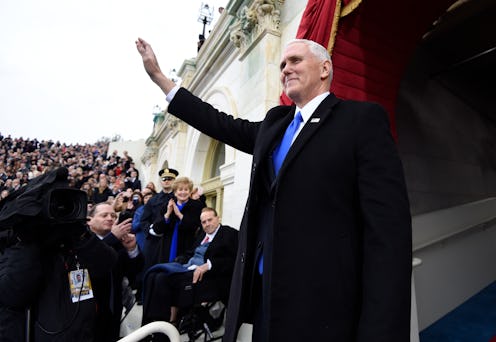News
President Mike Pence Could Be More Disastrous Than Trump

As talk of impeachment mounts in Washington, more and more eyes are turning to Vice President Mike Pence, the man the Constitution stipulates would succeed Donald Trump should he be removed from office. Although the chances Trump will face impeachment still remains relatively slim, perhaps it's time to ask ourselves: What might a Pence presidency look like?
If — and this still remains a big if — Trump were to resign from office or be impeached, the order of succession outlined in the U.S. Constitution and the Presidential Succession Act of 1947 dictates that Pence, as sitting vice president, would succeed Trump. But while scandals and leaks have plagued much of Trump's early presidential term, what could we expect from a Pence presidency?
Although it's impossible to say with complete certainty what policies and legislation Pence would push through should he succeed Trump as president, we can make a few educated guesses based on his prior actions and statements as an elected official. While Trump had absolutely no political experience prior to winning the 2016 presidential election, Pence has had plenty. After serving as a member of the House of Representatives for 12 years Pence was elected governor of Indiana in 2012.
Throughout his political career, Pence has remained a staunch supporter of both socially and fiscally conservative policies, meaning a Pence presidency may pose a serious threat to reproductive and LGBTQ rights. During the 2016 election, Pence regularly introduced himself as "a Christian, a conservative, and a Republican — in that order." It was a statement meant to drive home his commitment to religious freedom and hard-right conservatism reminiscent of the Tea Party.
But what policies and legislation does Pence count as achievements? During one of his early bids for Congress in 2000, Pence proposed diverting federal funding from organizations aimed at tackling HIV/AIDS to those "which provide assistance to those seeking to change their sexual behavior," such as controversial conversion therapy. While serving as a congressman from Indiana in 2006, Pence came out against same-sex marriage, arguing that being gay was a choice and that preventing gay couples from being able to marry was not discrimination but rather upholding "God's idea."
A year later, he voted against the Employment Non-Discrimination Act, which would have criminalized discrimination based on sexual orientation. As governor, Pence continued to support anti-LGBTQ legislation. In 2015, as Indiana's governor, Pence signed the controversial Religious Freedom Restoration Act into law, enabling Indiana businesses to cite religious beliefs as justification for denying service to lesbian, gay, bisexual and transgender customers.
Pence's reputation regarding reproductive rights is equally abysmal. Pence drafted legislation in 2011 aimed at blocking Planned Parenthood from receiving federal funding of any kind. Gov. Pence signed a 2013 bill directly aimed at shutting down a Lafayette Planned Parenthood clinic. In early 2016, Pence signed legislation that not only required women to undergo an ultrasound 18 hours before an abortion, but also stipulated that fetal remains — whether from an abortion or miscarriage — be buried or cremated, likely at the cost of the patient. And as vice president, Pence has been an outspoken opponent of abortion, having vowed on the campaign trail to see Roe v. Wade "consigned to the ash heap of history where it belongs."
Other gems from Pence's legislative past include opposition to efforts to raise the federal minimum wage from $5.15 to $7.25, and signing a bill prohibiting local governments in Indiana from forcing companies to pay wages higher than federal law requires.
But while Pence may have been an outspoken opponent of both LGBTQ and reproductive rights while serving in Congress and as governor of Indiana, it's unclear whether the circumstances of an impeachment would enable him to vigorously pursue such conservative policies as president. It's important to note that in the slim chance Trump is impeached, Pence, who is reportedly viewed as a source of stability in comparison with his unpredictable boss, would be assuming the presidency amid serious turmoil and would likely come under fire from critics and Democrats for his staunch support of Trump.
That being said, Pence counts House Speaker Paul Ryan (among other conservative Republican congressmen) as "a personal friend," meaning he'd likely have a built-in network of support as soon as he took office — should the GOP manage to come out of a Trump impeachment in one piece.